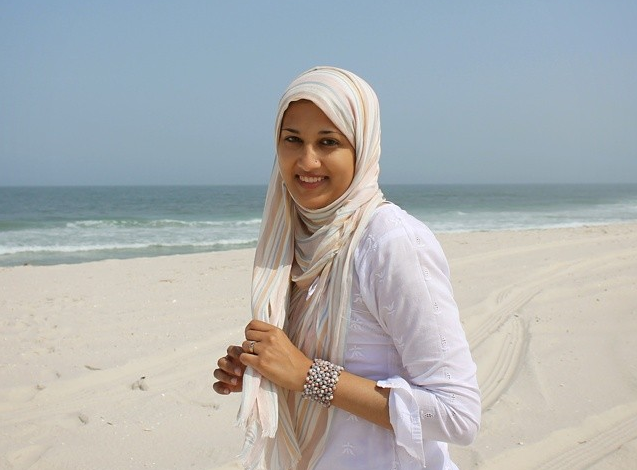As I sit down to write my thoughts and reflections, I pause to think, where should this story begin and how should it be told. It is an accumulation of nine years of emotions and confusion, experiences and reflection, and acceptance with perspective. It’s a simple story of this chapter of my life as a married woman expecting that the next chapter would be as a mother with children. I waited month after month and year after year for this chapter to arrive. In essence, my story affirms the idea that we may plan, but God is the best of planners. It is a story that is still being lived out and only God knows what the future holds.
Why now?
So why am I writing this piece? To put into words my experiences as a wife without kids. And also to offer a voice to many others who are living a life without kids– kids that they very much desire to have. To offer words of advice to family, friends, and random people who encounter childless women. And, finally, to give solace and perspective to women who share my experience. I know when I was struggling to cope, reading a piece by Farzana Gardee entitled Accidentally Childfree helped me realize I was not alone.
The statistics show that the percentage of married women ages 15-44 who are infertile is 6%. Some even say that one in eight couples or 12% of married women have trouble either conceiving or sustaining a pregnancy. Since infertility is more common than one would think, you may find yourself in a position where someone comes to you distraught and helpless because family, friends or even random people have made insensitive comments or asked probing questions. It can take quite an emotional toll on a person who is already feeling insecure about being in a state that is not in their control.
Family, Friends, and the Random People Along the Way
Most people are curious about the question of children. Understandably, it’s one of the most frequently asked questions of married women: “Do you have kids? How many?”And when she replies “No, I don’t,” she is asked: “Oh, so, how long have you been married? What are you waiting for?” However worded, one or more of these questions raise a slew of emotions for someone like me — a woman dealing with infertility. Who knew a simple answer of “no” would bring with it such a wave of insecurities and single-handedly ruin my day. In the early years, these questions were like darts to the heart, dampening dinner parties, and even causing me to avoid social gatherings altogether. As someone who wishes they could say ‘yes’ to people’s questions about having kids but cannot, it is a true test of patience and perspective.
If I can offer one piece of advice to family, friends, and strangers, it would be to show an extra dose of sensitivity to married women who do not have kids. How to do this isn’t always clear because every situation is different, but just be cognizant that a woman you are engaging with may be struggling with infertility. She may be in an extremely vulnerable state, plagued by a sense of helplessness and perhaps even failure. Therefore, it is important to be compassionate and considerate when asking questions about having kids. Think twice before asking certain follow-up questions or statements that may make a person feel even worse, such as “Oh, what are you waiting for?” or “You’re so lucky you don’t have kids,” or “”Enjoy life while you can,” or “You’re so young, you have time!” And, I give this advice fully understanding that most comments are made without any unkind intention, and can just be an side-remark in a conversation. But what may sound like a benign question or comment is anything but to someone struggling with infertility. It’s tough to know what to say, but here’s what I love to hear—a dua (supplication), even one as simple as Insha’Allah (God-willing), and the space to talk about my feelings if I so choose.
Part of the challenge of being in social gatherings with other women is that often the conversation is dominated by discussions about kids and child rearing. I realize that it’s a tough position for friends, who may not know how to engage with someone who does not have kids. I would suggest keeping the conversations tempered with other interesting topics besides motherhood— hobbies, careers or faith—so everyone can contribute in some way. It’s a learning curve for all of us. Over the years, I realized not to feel so alienated by these conversations, and that just listening to another’s experiences is good and wholesome.
I would also say that just because a married woman may not have children of her own, it doesn’t mean she doesn’t want to be around kids or doesn’t know how to handle kids. I myself love engaging with children and I know this sentiment is shared by so many other women without kids. We’re usually more than happy to help. When mothers are busy running back and forth with their kids, it can feel lonely to have nothing to do. So, unless stated otherwise, please know that we like to hold your baby, and it’s ok if they cry or kick or drool on us. We like to play and talk with your kids, it isn’t a burden. Let us decide if it’s something we’re uncomfortable with, but don’t impose these feelings and reactions on us.
Stay tuned for part II on Infertility and Faith: Putting Things in Perspective and How to Empathize With a Woman Who Has Not Given Birth.
(Photo Source: Arshe Ahmed)
Arshe Ahmed is an Affiliate Program Coordinator for the Princeton Muslim Life Program (MLP). She grew up in Brooklyn, NY and currently lives in central NJ with her husband, Sohaib Sultan, who is the Muslim Chaplain at Princeton University. Arshe can be reached at arshe2020@gmail.com and her fleeting musings can be found on Twitter: @arshe2020.






Great article and great advice, however I would emphasise sensitivity towards the “couple” without children. Around 40% of infertility issues are caused by male conditions, 40% by female conditions and 20% by a combination of the two. Tragically men are often left out of the discussion and, in our community in particular, dealt with possibly even more insensitively than women. We need to walk forward together.